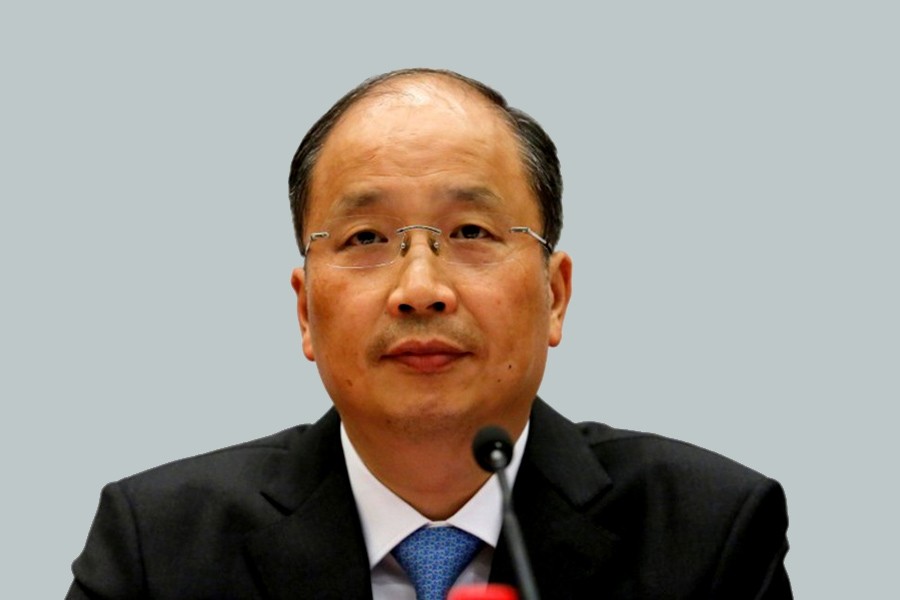China has appointed banking veteran Yi Huiman to head the China Securities Regulatory Commission (CSRC).
The appointment was announced at a time when investor confidence has been hit by a slowing economy and US tariffs, reports Reuters.
Yi, 54, currently chairman of the Industrial and Commercial Bank of China (ICBC), will take over from Liu Shiyu as the CSRC’s party secretary and chairman, reports Reuters quoting Chinese state news agency Xinhua on Saturday.
Yi is an ICBC stalwart and has been working at the state bank for more than three decades. He originally joined ICBC as a junior loan officer at a branch in Zhejiang province in 1985.
He was promoted to president of ICBC in 2013, overseeing the bank’s overall operations. Three years later, at the age of 51, he succeeded retiring chairman Jiang Jianqing to take the helm of the world’s largest lender by assets.
He’s “pragmatic and knows how to run giant ICBC,” said a Beijing-based ICBC banker who works under Yi and is familiar with his management style. He declined to be named as he is not permitted by his employer to speak to the media.
Yi, however, does not have a background in regulatory work, other sources said. Prior to joining ICBC, he spent a year working at the Hangzhou city bureau of the Chinese central bank.
ICBC and the CSRC did not immediately respond to requests for comment.
BIG CHALLENGES
Yi faces the challenge of reviving global and domestic investor interest in Chinese equities, which have lost a quarter of their value from a year ago amid slowing economic growth and friction between Beijing and Washington over trade issues.
Trust in the CSRC has also been hit following a spate of violations in which companies had paid officials to gain regulatory approvals.
Domestic media and industry participants usually describe the position of the CSRC chief as “sitting by a volcano crater” to illustrate the difficulty of leading the agency and overseeing China’s volatile financial markets.
In the short term, Yi will have to handle the imminent launch of a planned Nasdaq-style technology board in Shanghai, while the integration of China’s capital markets into the global system will also likely be at the top of his agenda.
Two projects aimed at internationalizing China’s stock market, including the Shanghai-London stock connect, were delayed last year. Foreign investors still only account for 3 percent of the country’s total market capitalization.
TOUGH TENURE
Liu, who served in CSRC’s top post for three years, has been given another appointment, Xinhua reported.
The state-run Securities Times newspaper reported on Saturday that Liu would become the deputy party chief of the All China Federation of Supply and Marketing Cooperatives, a ministerial-level government body under the State Council.
Liu took over the leadership of CSRC in 2016 following a turbulent period in the country’s stock markets. His tenure has been controversial among investors, with some praising his crackdown on speculative activities and others blaming him for sapping market vigour.
During the latest market crisis, he urged securities firms and mutual fund companies to inject liquidity into cash-strapped listings to ease margin call pressures. He also loosened rules on acquisitions and back-door listings.
“Liu did a good job of promoting value investment, and addressing market misbehaviours such as reckless acquisitions and fundraising,” said Shen Weizheng, fund manager at LC Securities.
But “it’s hard to lift a stock market when the economy is bad and companies are suffering. Liu is just unlucky.”


